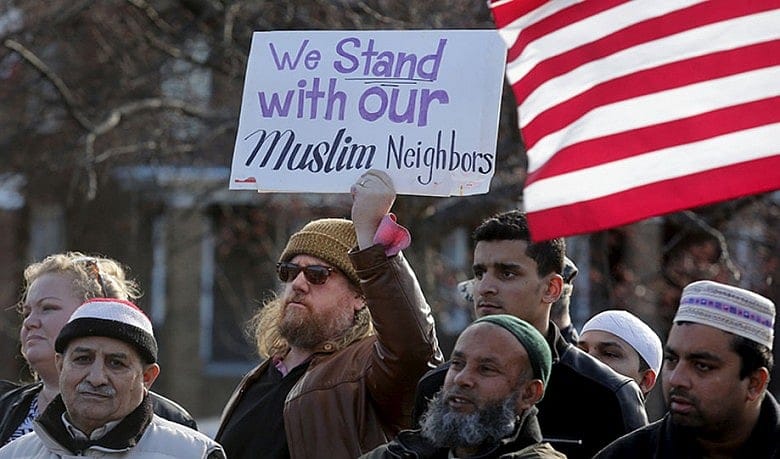American mosques trying to protect bodies and spirits from hate

(RNS) — Following a surge of attacks on mosques and Muslims — a backlash against recent extremist attacks in Paris and San Bernardino — Islamic leaders have been installing more security cameras and hiring more security guards. But as they worry about the physical safety of their flocks, they are also paying attention to the spiritual damage Islamophobia can inflict.
Hate crimes penetrate Muslims deeply and widely, said Kameelah Rashad, Muslim chaplain at the University of Pennsylvania.

